Western sanctions have made debilitating impacts on Syrians’ lives: UN human rights expert
A senior UN human rights expert has warned about the deleterious impacts of the Western sanctions against Syria, saying the ongoing unilateral coercive measures have caused dire humanitarian consequences for Syrian citizens who are seeking to rebuild their lives.
Alena Douhan, the United Nations Special Rapporteur on the negative impact of the unilateral coercive measures on the enjoyment of human rights, on Thursday called for the removal of sanctions against Syria, warning that they were perpetuating and exacerbating the destruction and trauma suffered by the Syrian nation since the onset of the foreign-sponsored conflict in March 2011.
“I am struck by the pervasiveness of the human rights and humanitarian impact of the unilateral coercive measures imposed on Syria and the total economic and financial isolation of a country whose people are struggling to rebuild a life with dignity, following the decade-long war,” Douhan said in a statement following her 12-day visit to Syria.
Douhan said 90 percent of Syria’s population was currently living below the poverty line, with limited access to food, water, electricity, shelter, cooking and heating fuel, transportation and healthcare; and warned that the country was facing a massive brain-drain due to growing economic hardship.
“With more than half of the vital infrastructure either completely destroyed or severely damaged, the imposition of unilateral sanctions on key economic sectors, including oil, gas, electricity, trade, construction and engineering have quashed national income, and undermine efforts towards economic recovery and reconstruction,” she noted.
The UN rights expert said blocking of payments and refusal of deliveries by foreign producers and banks, coupled with sanctions-induced foreign currency reserves, have caused serious shortages in medicines and specialized medical equipment, particularly for chronic and rare diseases.
She also warned that rehabilitation and development of water distribution networks for drinking and irrigation had stalled due to the unavailability of equipment and spare parts, creating serious public health and food security implications.
“In the current dramatic and still-deteriorating humanitarian situation as 12 million Syrians grapple with food insecurity, I urge the immediate lifting of all unilateral sanctions that severely harm human rights and prevent any efforts for early recovery, rebuilding and reconstruction,” Douhan said.
“No reference to good objectives of unilateral sanctions justifies the violation of fundamental human rights. The international community has an obligation of solidarity and assistance to the Syrian people,” she underlined.
Syria has been in the throes of foreign-backed militancy since March 2011. While the Daesh terrorist group was crushed by the Syrian government, the militant groups continue to hold sway in some parts of the country under the patronage of Western powers.
Numerous reports have pointed to the US’ role in transferring Daesh terrorists to the war-ravaged country and even airlifting supplies to the group.
Last year, the US government imposed sweeping economic sanctions against Syria amid the Arab nation’s uphill battle for reconstruction and recovery.
The controversial Caesar Syria Civilian Protection Act, signed into law by former President Donald Trump, targeted individuals and businesses anywhere in the world that participated either directly or indirectly in Syria’s economy.
The restrictive measures have blocked imports of essential goods, affecting the Syrian people’s access to medical equipment, food, heating, gas, and electricity.

Israel launches drone strikes on several sites in southern Syria

Top Iraqi diplomat warns against resurgence of Daesh terrorists in Syria
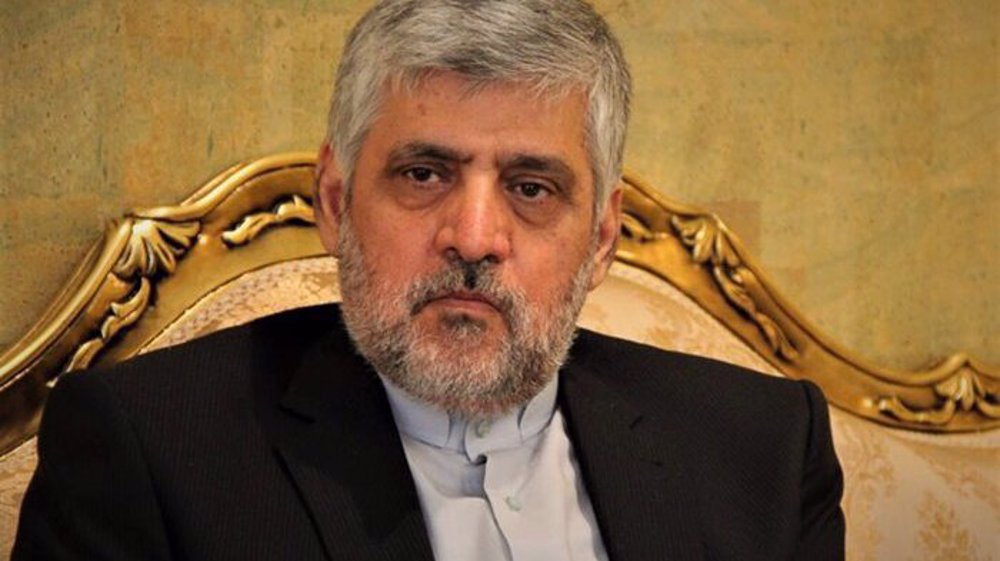
Envoy confirms Iran's indirect contact with Syria’s de facto rulers
IRGC unveils new homegrown smart missiles, drones drill
Iran launches project to extract, purify helium from natural gas
Qatari Emir arrives in Tehran for deeper cooperation talks
VIDEO | Press TV's news headlines
Israel to release longest-serving Palestinian inmate Nael al-Barghouti
IRGC dismantles multiple US, Israeli spying networks in northern Iran
Two Israeli soldiers flee Amsterdam over arrest warrant fears
Iran rebukes US 'colonial' plan for forced relocation of Gazans



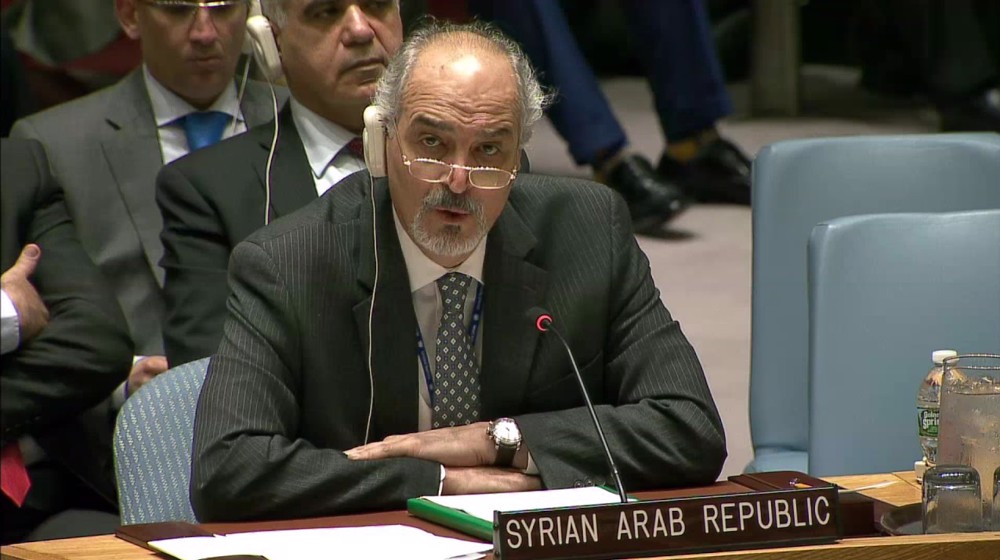

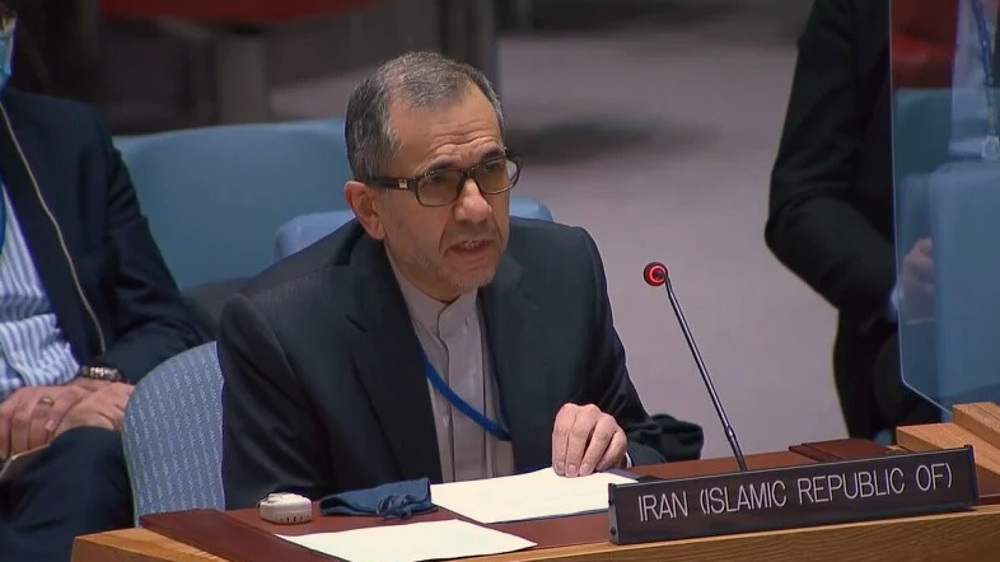



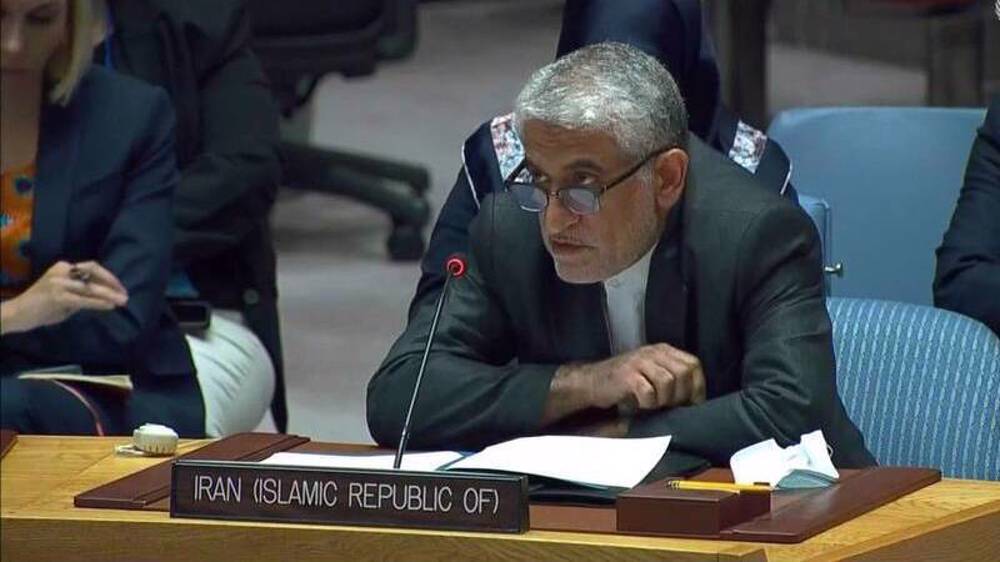


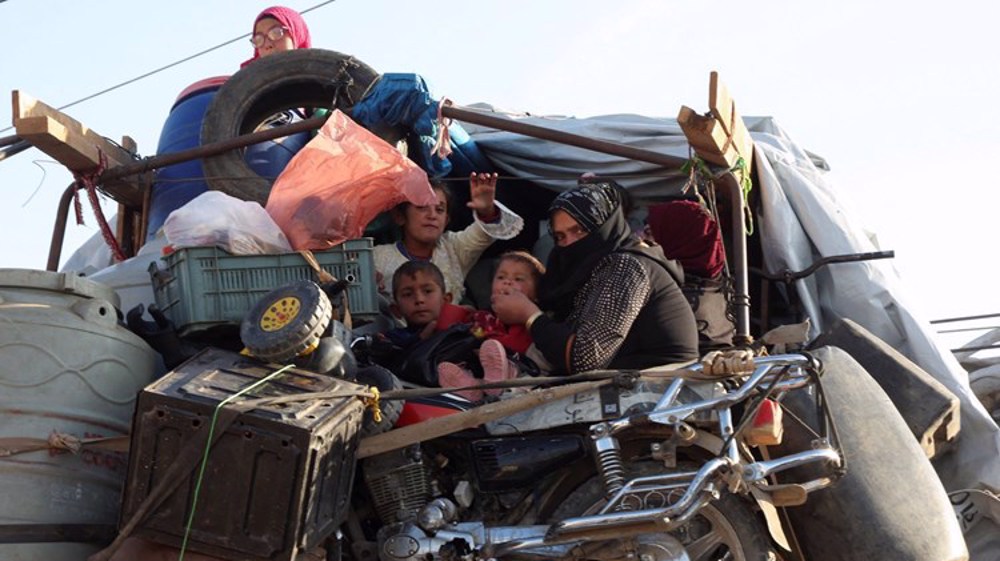

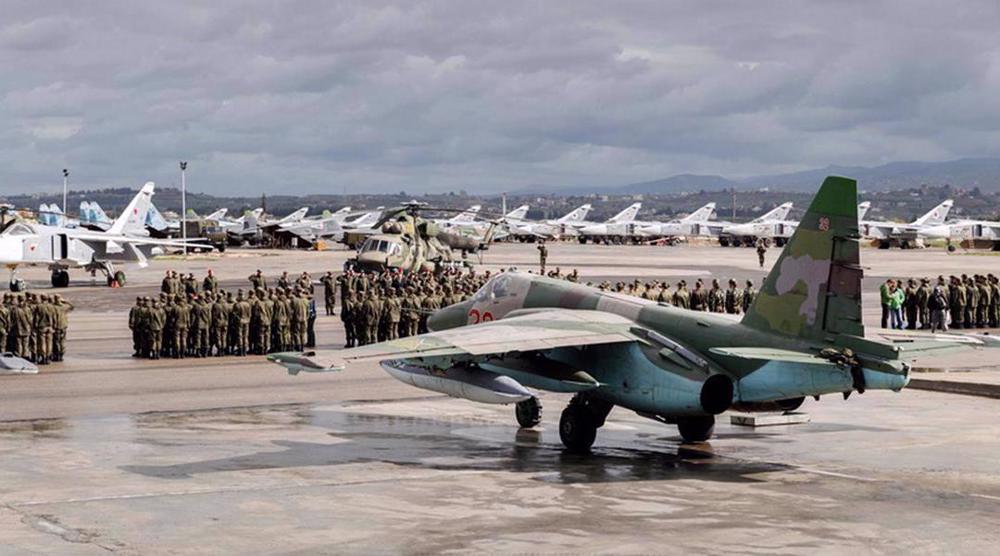



 This makes it easy to access the Press TV website
This makes it easy to access the Press TV website